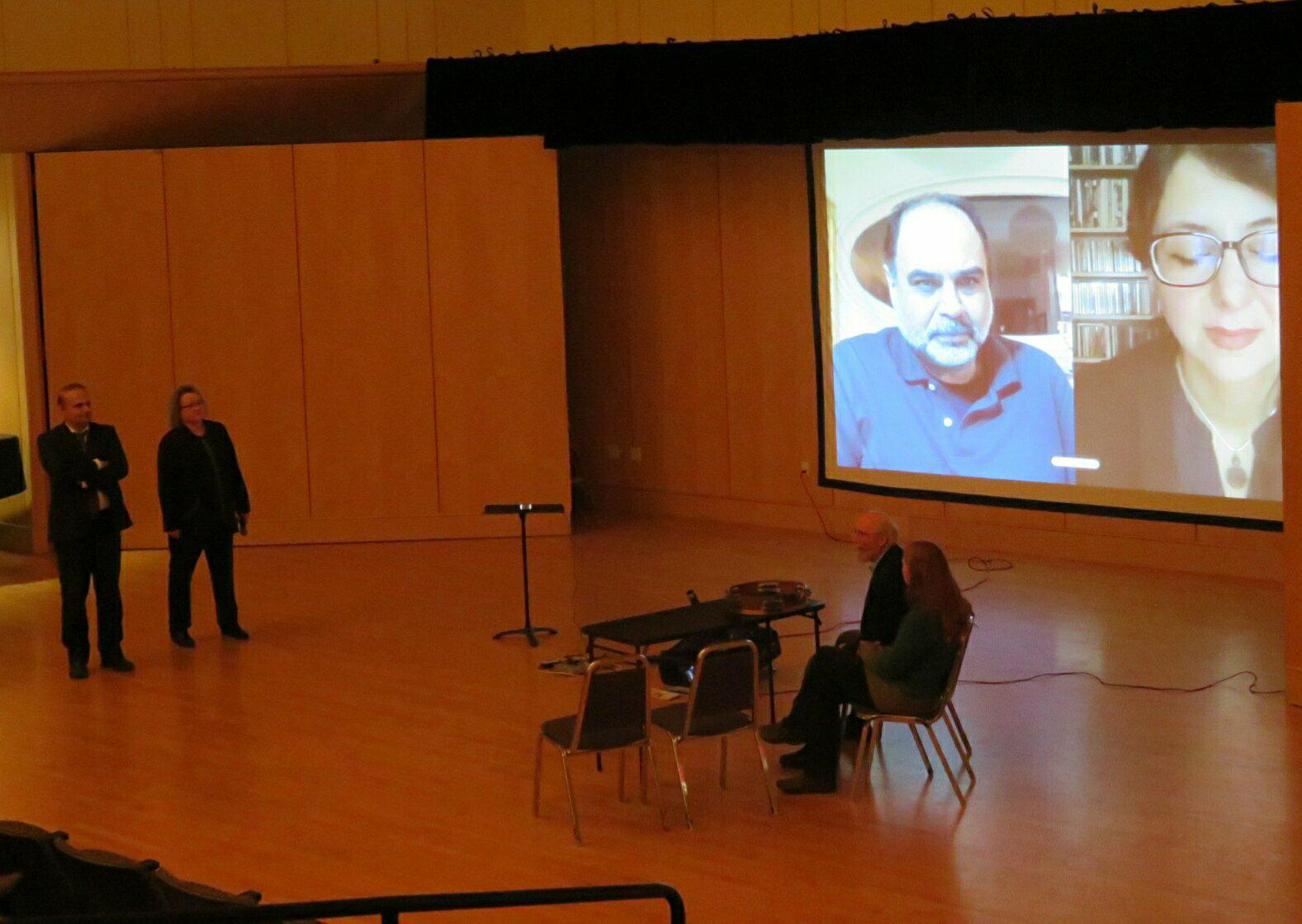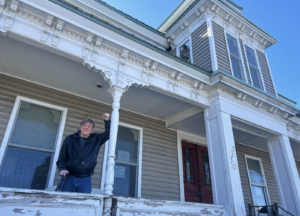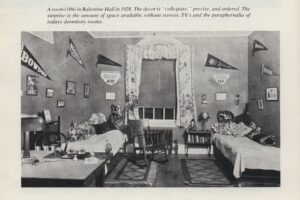On Friday, Feb. 23 at 7:30 p.m. the University of Maine School of Performing Arts (SPA) presented a screening of the documentary “Six Centuries, Six Years.”
The film portrays the journey of Iranian musicians who are trying to “locate, restore and record a repertoire of compositions attributed to Abd al-Qadir Maraghi.” He was a prominent musician who lived six centuries ago. His work has greatly influenced Persian and subsequently Ottoman classical music. During their six-year journey, the group of musicians worked together to reassemble a major portion of Abd al-Qadir Maraghi’s music that hasn’t been played in 600 years.
More than 50 people gathered at Minsky Recital Hall to experience the journey of reproducing this ancient music.
The beginning of the documentary follows the leader of the group, Iranian musician and researcher Mohammad-Reza Darvishi, and his search for the ancient manuscripts. He went to Istanbul, Turkey to speak with researchers from the Istanbul Technical University and visit the archives. One of the most beautiful scenes in this film is Darvishi’s ferry ride from Europe to Asia on the famous Bosphorus Strait. Seeing Istanbul from this angle made one wonder what it was like during the times of the Roman Empire, when the city was called Constantinople.
The movie brought to life the music of 14th century Persia. One of the mysteries presented in this movie is the fact that Abd al-Qadir Maraghi has written his work in notations; the musicians in the documentary were puzzled as to where Abd al-Qadir Maraghi learned classical notations.
In their quest for authenticity, musicians had several disagreements on how the music should be played.
The names of nine musicians and the traditional instruments they played are as follows: Negar Bouban (oud, a string instrument), Sanaz Nakhjavani (qanun, string), Ali Samadpour (rebab, bowed string), Siroos Jamali (bass rebab), Arash Shahriari (tanbur, string), Siamak Jahangiry (ney, end-blown flute), Behzad Mirzayi (dayereh, drum), Samer Habibi and Ehsan Zabihifar (kamanche, bowed string) and vocalist Homayoun Shajarian.
During the mixing session of the vocals with instrumentals, Shajarian’s father, prominent singer Mohammad-reza Shajarian, provided his expertise. When younger professionals pushed for following the original melody versus having the music sound organic, Mohammad-reza Shajarian reminded them that “our ears are the final judge.” At first he was hesitant to join the project due to the lack of widespread support it received. Yet when he came to the studio and listened to what the musicians created, he realized how special the project was. Shajarian expressed his admiration to the talented musicians, noting that this kind of exceptional work could only be done by true masters of their field.
When asked if the final music is the accurate reproduction of Abd al-Qadir Maraghi, Shajarian replied, “No, but it’s as close as you get to the music of that time.”
After the movie, the audience had a chance to ask their questions of the movie director Mojtaba Mirtahmasb and Dr. Negar Bouban, the oud player, over Skype. The two woke up at the crack of dawn as it was 5 a.m. in Tehran, Iran when it was 9 p.m. in Maine.
“We had doubts, when you look for something that’s connected to the past, you have doubts,” Bouban said about the process of reviving the ancient Persian music. “We weren’t sure if what we play would be intact and true to Abd al-Qadir Maraghi, but it was heartwarming enough. We tried to push forward and connect anything that had his name on it.” If she could ask Abd al-Qadir Maraghi, she’d ask where the rest of his lost work can be found and whether he enjoyed the group’s performance.
Hosain (Amir) Haddad Kolour, a Ph.D. candidate in the civil engineering department, co-organized the event with UMaine SPA and the help of Professor Beth Wiemann, Chair of the Music Division at UMaine and Professor Ali Abedi from the electrical and computer engineering department.
“I wanted to show the beautiful face of my country,” Haddad Kolour said. “Because any time that I watch the mainstream media I see the bad news about Iran and the Middle East. So I decided to do something about that and show the beauties of my country.” Indeed, the ancient music captivated the audience as some swayed to the melodic rhythm.
“It was fantastic,” Dyandrea Labonte, a graduate student at UMaine, said. “Being able to see history come out of the music they were searching for. I didn’t know what to expect coming to see this movie, but it turned out so much more mysterious.”
Labonte believes that it doesn’t matter that the musicians weren’t able to reproduce Abd al-Qadir Maraghi in its original version. “It’s about creating something new out of something old,” she said.
In the credit scene, the final cut of one of the songs was played. Having seen the behind-the-scenes of making this music, the audience seemed so much more appreciative of the finished result.
To answer how the music from six centuries ago could resonate with people of the modern time, Darvishi puts it best saying that “when you do something with love, it stays forever.”









